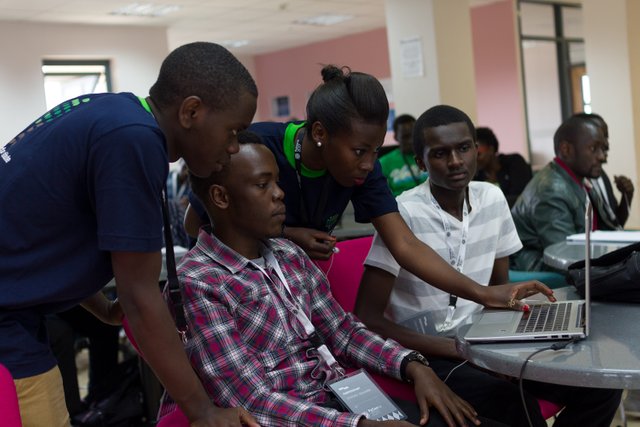Tunapanda Institute
Unlocking human potential

About Tunapanda Institute
Tunapanda Institute (Tunapanda is a Swahili word for “we are growing”) is a United States based non-profit organization operating in East Africa. With the goal of training disadvantaged young people, various free courses in technology, design and entrepreneurship are offered to increase the chance of graduates in the labour market. The majority of its work is based in Kibera, a slum in Nairobi, but it has also operated in other parts of Kenya, Tanzania, and Uganda.
In 2016, Tunapanda Institute was named as one of 2016 NT100, Nominet Trust's annual celebration of 100 inspiring tech-for-good ventures from around the world.
Tunapanda was founded in 2013 by the brothers Jay Larson and Mick Larson, with the aim of providing learning opportunities to unconnected communities through the use of an “education on a hard drive”. They downloaded openly-licensed software and educational content for computer programming, design, and business/entrepreneurship, as well as general-knowledge content from Wikipedia and Khan Academy, which they then distributed on CDs, external hard drives, and USB drives at various schools and community organizations.
Tunapanda then opened its own training facility and developed a three-month intensive training courses in technology, design and business which has to date been taught to more than 200 students.
While focused mainly on education and training Tunapanda also provides graduates with the opportunity to earn an income from working on technology-related projects for clients and partners.
Tunapanda Institute Mission
In 2015, TunapandaNET was conceived as a way to provide access to digital learning materials and platforms to young people within Kibera who may not be able to afford regular internet use. The network connects schools and community centers to Tunapanda’s learning facility through wireless communication. Since content is hosted locally, the network operates as an intranet and costs considerably less for users to access content than traditional service providers. The network has grown to incorporate ten nodes within Kibera and plans to expand to more by the end of 2019.
100% of they funding currently comes via the generosity of he general public. Lack of funding can prove a barrier to working so they are continually seeking new support. They currently have a very small team, comprising one full time Executive and a part time assistant in the UK and most of there core operation is supported by volunteers.